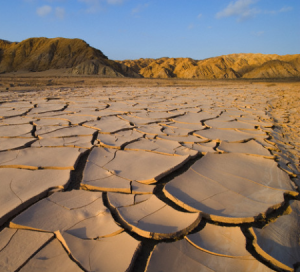 Biofuels has been compared with fossil fuels, blamed for worldwide starvation, linked to CO2 increases and decreases, and born the brunt of scrutiny for rainforest destruction (aka land use). However, until now, biofuels have yet to receive a real beating on water use. Well, that day may be on the horizon with the release of the new Rice University study, “The Water Footprint of Biofuels: A Drink or Drive Issue?”
Biofuels has been compared with fossil fuels, blamed for worldwide starvation, linked to CO2 increases and decreases, and born the brunt of scrutiny for rainforest destruction (aka land use). However, until now, biofuels have yet to receive a real beating on water use. Well, that day may be on the horizon with the release of the new Rice University study, “The Water Footprint of Biofuels: A Drink or Drive Issue?”
The paper studies the relationship between agrofuels and water shortage issues. The study’s lead author was Pedro Alvarez, George R. Brown Professor of Civil and Environmental Engineering and was funded by Rice University’s Shell Center for Sustainability.
The WorldWatch Institute has declared, “Water scarcity may be the most under appreciated global environmental challenge of our time,” and the Environmental Protection Agency has predicted that in the U.S. 36 states will suffer water shortages within the next five years if water use continues unchecked.
The report states, “As biofuel production increases, a growing need exists to understand and mitigate potential impacts to water resources, primarily those associated with the agricultural stages of the biofuel life cycle (e.g. water shortages and water pollution)–herein referred to as the water footprint.”
 The report recommends that specific biofuel crops should be grown in certain regions. For example, corn for ethanol should be grown in states like Iowa where only one percent of the crops are irrigated, whereas significantly less corn should be grown in Nebraska where 61 percent of corn is irrigated. The report ultimately calls for more attention to the water footprint of biofuels as policies and mandates are put into place. However, it also states that with careful water usage planning, sustainable agricultural practices and energy conservation we can, “have our drive and drink our water too.”
The report recommends that specific biofuel crops should be grown in certain regions. For example, corn for ethanol should be grown in states like Iowa where only one percent of the crops are irrigated, whereas significantly less corn should be grown in Nebraska where 61 percent of corn is irrigated. The report ultimately calls for more attention to the water footprint of biofuels as policies and mandates are put into place. However, it also states that with careful water usage planning, sustainable agricultural practices and energy conservation we can, “have our drive and drink our water too.”
The industry is not taking the concern over water lying down. Advanced biofuels are being developed with the need to use significantly less water and seed companies are developing hybrids that will ultimately cut water needs in half per acre. Like the continual debate as to the reality of global warming, we may be on the verge of a long debate on whether the world really has water quality and shortage issues.

